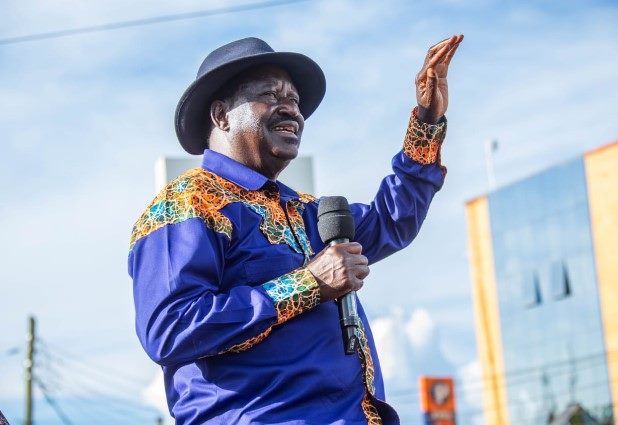Veteran opposition leader Raila Odinga’s spokesman, Dennis Onyango, announced on Monday that anti-government protests will resume in Nairobi on May 2. The opposition had previously suspended rallies to participate in dialogue with Kenyan authorities, following an invitation extended by the government in an attempt to resolve the ongoing crisis.
In response to the country’s economic hardships, Odinga organized a series of bi-weekly anti-cost of living rallies in March, accusing President William Ruto of “stealing” the August presidential election and failing to curb soaring prices. These rallies, which gained significant traction and support from various segments of society, were subsequently banned by the police, citing concerns over public safety and potential unrest.
The 78-year-old opposition leader, who has unsuccessfully run for president multiple times, suspended the rallies in early April to engage in discussions with the government. During these talks, a bipartisan parliamentary committee was established to explore the possibility of revising the electoral code, aiming to prevent future disputes and improve electoral processes. However, President Ruto ruled out forming an alliance with Raila Odinga, stating that their political differences were irreconcilable.
While Odinga welcomed Ruto’s “olive branch” and the opportunity for dialogue, he warned that protests could resume if no progress was made towards addressing the issues raised by the opposition. The initial protests resulted in the deaths of three people, including a police officer, and were marked by looting and vandalism. In response to these incidents, the institution responsible for overseeing law enforcement has launched an investigation, seeking to hold accountable those responsible for the violence.
The Media Council of Kenya reported that “25 cases of attacks on local and foreign journalists” by “state and non-state actors” occurred during the demonstrations, highlighting the risks faced by the press in covering these events and the broader implications for freedom of expression.
Inflation, a depreciating Kenyan shilling, and an unprecedented drought in some parts of the country have left many Kenyans struggling to feed themselves daily. As a result, public frustration has grown, fueling the opposition’s cause. International and religious leaders have called for calm, fearing that the situation could escalate into ethnic violence similar to the aftermath of the 2007-08 elections, which claimed over 1,100 lives.
Despite the Supreme Court’s rejection of his appeal, Odinga remains steadfast in his belief that the August 9, 2022, presidential election was marred by irregularities and fraud, and he continues to contest the results. As he prepares to lead his supporters in a new wave of protests, the stability of the nation hangs in the balance, and many await the outcomes of the resumed demonstrations and ongoing discussions between the opposition and government.
Who is Raila Odinga ?
Raila Odinga, a seasoned politician and opposition leader in Kenya, has been an influential figure in the nation’s political landscape for decades. Born in 1945, he is the son of Jaramogi Oginga Odinga, Kenya’s first Vice President. Raila Odinga’s political career has been marked by a steadfast commitment to democracy and social justice, even in the face of adversity.
Having run for president five times without success, Odinga has not wavered in his quest for the highest office. Throughout his political career, he has been known to form strategic alliances, playing a key role in the formation of various political parties and coalitions, such as the National Super Alliance (NASA), Coalition for Reforms and Democracy (CORD), and the Orange Democratic Movement (ODM).
Odinga has also been a staunch advocate for electoral reform, pushing for changes to Kenya’s electoral code in an effort to ensure fair and transparent elections. His persistence in contesting the results of the August 2022 presidential election, despite the Supreme Court’s rejection of his appeal, is demonstrative of his unwavering determination.
However, critics argue that Odinga’s repeated calls for protests and demonstrations have contributed to unrest and violence in the country. As the opposition prepares to resume anti-government protests on May 2, it remains to be seen what impact Odinga’s continued leadership will have on the nation’s stability and prospects for peace.
The country’s ongoing economic challenges have exacerbated the existing political tensions. In addition to high inflation and a weak currency, Kenya is grappling with rising unemployment rates and a widening wealth gap. The government’s inability to address these issues has fueled public dissatisfaction and increased support for Odinga’s opposition movement.

Image Credit: Raila Odinga/Twitter



